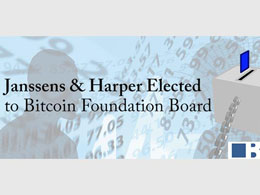
38% of US voters will consider candidates' position on crypto in midterms: Su...
Initiated by Grayscale, the survey suggested crypto regulation was a bipartisan issue, with the majority of Democratic and Republican respondents saying they wanted clarity. Roughly a third of eligible voters in the United States will be “considering crypto policy positions” when choosing candidates in the 2022 midterm elections, according to a new survey.In the results of a 2,029-person survey conducted by The Harris Poll between Oct. 6-11, 57% of likely midterm voters said they would be more likely to vote for a political candidate interested in staying informed about cryptocurrencies,....
Related News
The outcome of elections with pro- and anti-crypto political candidates could determine the future of digital asset legislation and regulation in the United States. On Nov. 8, registered voters across the United States will cast ballots for political candidates to represent them at the local, state, and federal level — and for some people, crypto is the main issue.Voters took to social media amid early voting in certain U.S. states and ahead of Election Day to proclaim that despite many of the issues driving people to the polls — including ensuring free and fair elections, gun control, and....
A vote to fill two vacant seats on the Bitcoin Foundation's Board of Directors has ended with no candidate garnering enough votes to secure a position. Candidates needed at least 52 votes to be elected to a seat, however, no-one passed this voting threshold, election results show. However, despite no candidates being elected, clear favorites for the positions did emerge. BTC China CEO Bobby Lee received 44 votes, while venture capital Brock Pierce and Gyft CEO Vinny Lingham finished second and third in the voting, capturing 34 and 21 votes respectively. The foundation will now hold a....
The process was "messy" but the results are in. The new board members for the Bitcoin Foundation are Olivier Janssens and Jim Harper with 63 percent and 60 percent approval respectively. Michael Perklin finished third with 52 percent approval followed by Bruce Fenton with 50 percent. Out of 595 confirmed voters, 440 votes were cast (74 percent). In order to be elected, candidates had to be approved by at least 50 percent of eligible voters. In the first round of voting, none of the 13 candidates met that 50 percent approval threshold, so a run-off election among the top 4 candidates was....
"Voters are less likely to support candidates perceived as standing in the way of a decentralized internet,” said Haun Ventures. A poll of 800 likely midterm voters in four U.S. swing states suggested that the overwhelming majority favored ideas around decentralization, and many were HODLers.According to a Sept. 29 report from venture capital firm Haun Ventures on a survey conducted by business intelligence company Morning Consult, roughly one in five voters polled in New Hampshire, Nevada, Ohio and Pennsylvania said they owned cryptocurrency or nonfungible tokens. In addition, 91% of....
Candidates in the ongoing Bitcoin Foundation election to fill two vacant board of director positions have expressed concern at a low voter turnout. Candidate Jim Harper of the Cato Institute, and former global policy counsel for the foundation, has pointed out that only 364 of the organisation's roughly 2,728 members have registered to vote - about 13% (this figure has been revised-please see below). This is in part due to the Bitcoin Foundation's requirement that members must confirm their intention to vote before becoming eligible, he contends. The 364 figure means the minimum threshold....





